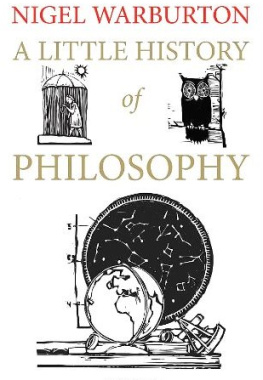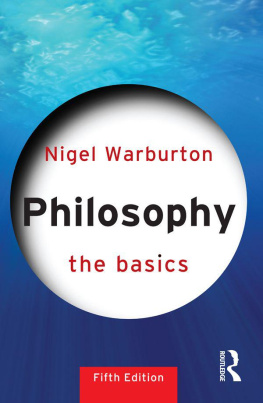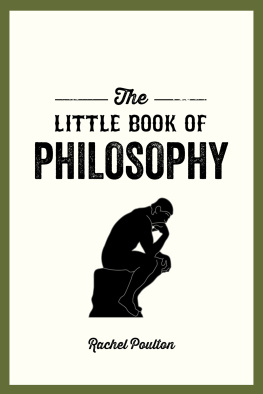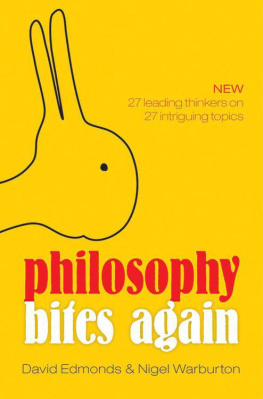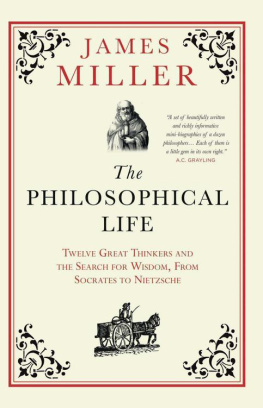chapter 1
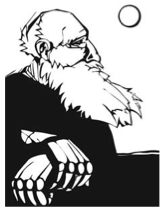
The Man Who Asked Questions
Socrates and Plato
About 2,400 years ago in Athens a man was put to death for asking too many questions. There were philosophers before him, but it was with Socrates that the subject really took off. If philosophy has a patron saint, it is Socrates.
Snub-nosed, podgy, shabby and a bit strange, Socrates did not fit in. Although physically ugly and often unwashed, he had great charisma and a brilliant mind. Everyone in Athens agreed that there had never been anyone quite like him and probably wouldnt be again. He was unique. But he was also extremely annoying. He saw himself as one of those horseflies that have a nasty bite a gadfly. Theyre irritating, but dont do serious harm. Not everyone in Athens agreed, though. Some loved him; others thought him a dangerous influence.
As a young man he had been a brave soldier fighting in the Peloponnesian wars against the Spartans and their allies. In middle age he shuffled around the marketplace, stopping people from time to time and asking them awkward questions. That was more or less all he did. But the questions he asked were razor-sharp. They seemed straightforward; but they werent.
An example of this was his conversation with Euthydemus. Socrates asked him whether being deceitful counted as being immoral. Of course it does, Euthydemus replied. He thought that was obvious. But what, Socrates asked, if your friend is feeling very low and might kill himself, and you steal his knife? Isnt that a deceitful act? Of course it is. But isnt it moral rather than immoral to do that? Its a good thing, not a bad one despite being a deceitful act. Yes, says Euthydemus, who by now is tied in knots. Socrates by using a clever counter-example has shown that Euthydemus general comment that being deceitful is immoral doesnt apply in every situation. Euthydemus hadnt realized this before.
Over and over again Socrates demonstrated that the people he met in the marketplace didnt really know what they thought they knew. A military commander would begin a conversation totally confident that he knew what courage meant, but after twenty minutes in Socrates company would leave completely confused. The experience must have been disconcerting. Socrates loved to reveal the limits of what people genuinely understood, and to question the assumptions on which they built their lives. A conversation that ended in everyone realizing how little they knew was for him a success. Far better that than to carry on believing that you understood something when you didnt.
At that time in Athens the sons of rich men would be sent to study with Sophists. The Sophists were clever teachers who would coach their students in the art of speech-making. They charged very high fees for this. Socrates in contrast didnt charge for his services. In fact he claimed he didnt know anything, so how could he teach at all? This didnt stop students coming to him and listening in on his conversations. It didnt make him popular with the Sophists either.
One day his friend Chaerophon went to the oracle of Apollo at Delphi. The oracle was a wise old woman, a sibyl, who would answer questions that visitors asked. Her answers were usually in the form of a riddle. Is anyone wiser than Socrates? Chaerophon asked. No, came the answer. No one is wiser than Socrates.
When Chaerophon told Socrates about this he didnt believe it at first. It really puzzled him. How can I be the wisest man in Athens when I know so little? he wondered. He devoted years to questioning people to see if anyone was wiser than he was. Finally he realized what the oracle had meant and that she had been right. Lots of people were good at the various things they did carpenters were good at carpentry, and soldiers knew about fighting. But none of them were truly wise. They didnt really know what they were talking about.
The word philosopher comes from the Greek words meaning love of wisdom. The Western tradition in philosophy, the one that this book follows, spread from Ancient Greece across large parts of the world, at time cross-fertilized by ideas from the East. The kind of wisdom that it values is based on argument, reasoning and asking questions, not on believing things simply because someone important has told you they are true. Wisdom for Socrates was not knowing lots of facts, or knowing how to do something. It meant understanding the true nature of our existence, including the limits of what we can know. Philosophers today are doing more or less what Socrates was doing: asking tough questions, looking at reasons and evidence, struggling to answer some of the most important questions we can ask ourselves about the nature of reality and how we should live. Unlike Socrates, though, modern philosophers have the benefit of nearly two and a half thousand years of philosophical thinking to build on. This book examines ideas of some of the key thinkers writing in this tradition of Western thought, a tradition that Socrates started.
What made Socrates so wise was that he kept asking questions and he was always willing to debate his ideas. Life, he declared, is only worth living if you think about what you are doing. An unexamined existence is all right for cattle, but not for human beings.
Unusually for a philosopher, Socrates refused to write anything down. For him talking was far better than writing. Written words cant answer back; they cant explain anything to you when you dont understand them. Face-to-face conversation was much better, he maintained. In conversation we can take into account the kind of person we are talking to; we can adapt what we say so that the message gets across. Because he refused to write, its mainly through the work of Socrates star pupil Plato that we have much idea of what this great man believed and argued about. Plato wrote down a series of conversations between Socrates and the people he questioned. These are known as the Platonic Dialogues and are great works of literature as well as of philosophy in some ways Plato was the Shakespeare of his day. Reading these dialogues, we get a sense of what Socrates was like, how clever he was and how infuriating.
Actually it isnt even as straightforward as that, as we cant always tell whether Plato was writing down what Socrates really said, or whether he was putting ideas into the mouth of the character he calls Socrates, ideas which are Platos own.
One of the ideas that most people believe is Platos rather than Socrates is that the world is not at all as it seems. There is a significant difference between appearance and reality. Most of us mistake appearances for reality. We think we understand, but we dont. Plato believed that only philosophers understand what the world is truly like. They discover the nature of reality by thinking rather than relying on their senses.
To make this point, Plato described a cave. In that imaginary cave there are people chained facing a wall. In front of them they can see flickering shadows that they believe are real things. They arent. What they see are shadows made by objects held up in front of a fire behind them. These people spend their whole lives thinking that the shadows projected on the wall are the real world. Then one of them breaks free from his chains and turns towards the fire. His eyes are blurry at first, but then he starts to see where he is. He stumbles out of the cave and eventually is able to look at the sun. When he comes back to the cave, no one believes what he has to tell them about the world outside. The man who breaks free is like a philosopher. He sees beyond appearances. Ordinary people have little idea about reality because they are content with looking at whats in front of them rather than thinking deeply about it. But the appearances are deceptive. What they see are shadows, not reality.

